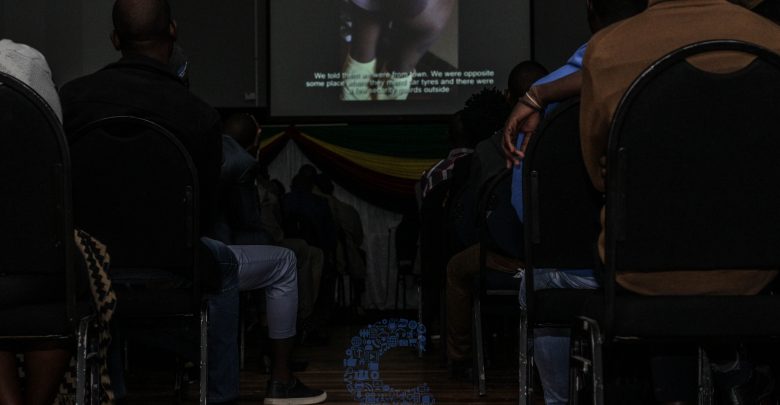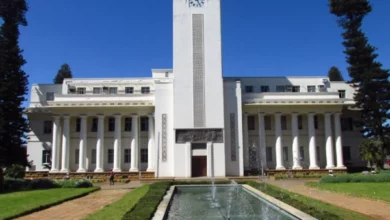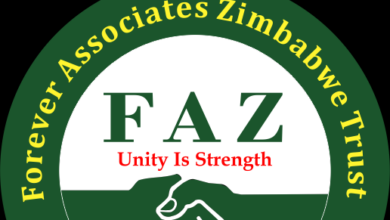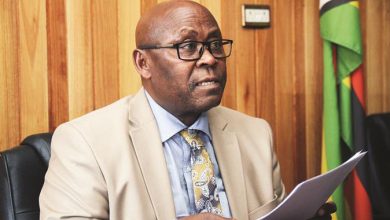Byo residents relive January protests horror

Hundreds of Bulawayo residents, Wednesday, relived the violent January protests which rocked the city followed by an army crackdown, which according to human rights organisations left about 17 people dead.
The residents witnessed the launch of a documentary titled “Zimbabwe Shutdown: The January Protests” at a local hotel, which tells the stories, experiences of protesters and victims of the subsequent clampdown by the state machinery.
The 45-minute documentary was produced by Zenzele Ndebele.
In January, the Matabeleland Collective – a network of civil society organisations and churches based in the city, revealed that more than 1000 residents in Bulawayo have been subjected to torture and assault orchestrated by the military and police ever since the shutdown protests.
Seventeen people including a police officer were killed, while 17 cases of rape or other violations of a sexual nature, 26 abductions, 61 displacements, 81 assaults consistent with gunshot attacks, at least 586 assaults and torture, inhuman and degrading treatment including dog bites, 954 arrests and detention (including dragnet arrests), among other violations,were recorded during the two week long brutal crackdown that began on January 14.
In a February interview with a French broadcaster, France 24, on the sidelines of the African Union summit in Ethiopia, President Emmerson Mnangagwa denied reports linking the army with the violent crackdown and demanded that he be presented with concrete evidence.
“You say judicial killings, this is where the army directly and purposefully orders the killing of people; we would want to see the evidence. We see all this in social media; we would want to see evidence where the 17 killed were buried. Let us see the relatives who will say I lost a son, I lost a daughter, I lost a cousin by the hands of the army,” Mnangagwa said.
Speaking at the launch, Ndebele, said the documentary was meant to reveal what citizens went through during the crackdown.
“It is very important that we continue to remember what took place during the January protests, what motivated it and the violence that culminated afterwards, which affected a lot of residents. Through the documentary, we want to tell peoples’ stories – their experiences of what they went through during the shutdown and it is not easy for them,” said Ndebele.
Ndebele also revealed that he had received threats from unknown people trying to dissuade him from launching the documentary and had reported the matter to the police.
“This is the nature of the people we live with, who always want to make sure you don’t do anything. What is wrong with saying my neighbour was beaten, saying my uncle was killed? Those who survived will tell the story but something about life is if you kill someone, you don’t acquire a spare life, no you die too!” he said.
The guest speaker at the launch, Professor Gerald Mazarire, a history lecturer at the Midlands State University, gave a presentation d on the history of violence in Zimbabwe, which he said dated back to 1490 during the times of the Mutapa State.
He said in order to understand nature of violence, it is necessary to ‘desperately’ unpack the situation of the state.
“Where does the state obtain material of what violence is? How does it deploy its violence so that when we see events unfolding be it Gukurahundi, 2008 violence or the current January protests, we understand what the state is? “Is the state the police or army? Is it the Central Intelligence Organisation?
“If it is police, who are in the police that do it? Is it the Criminal Investigation Department, support unit, Police Internal Security lntelligence (PISI), Law and Order? If it is the army, is it the commando or infantry? How have they been used before and how are they used now? I hope as we see the documentary we will think at the back of our minds where is the state, what is the state and who the state is,” posed Prof Mazarire.






